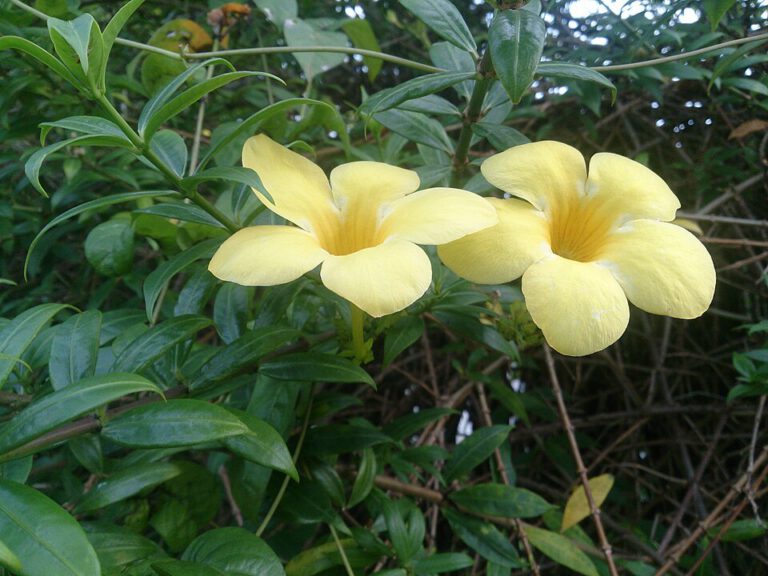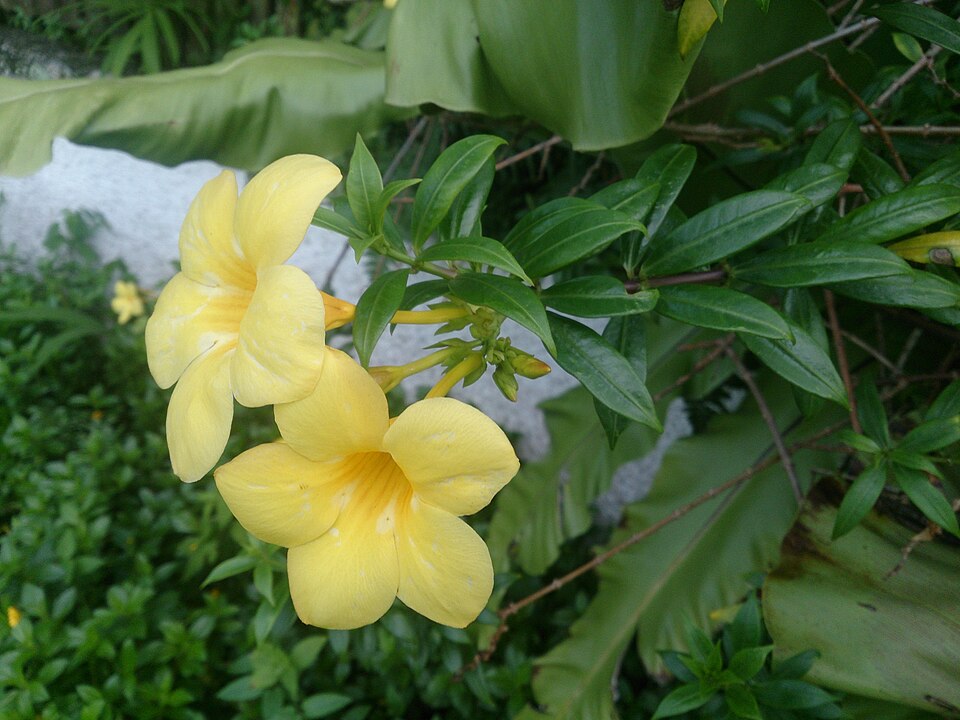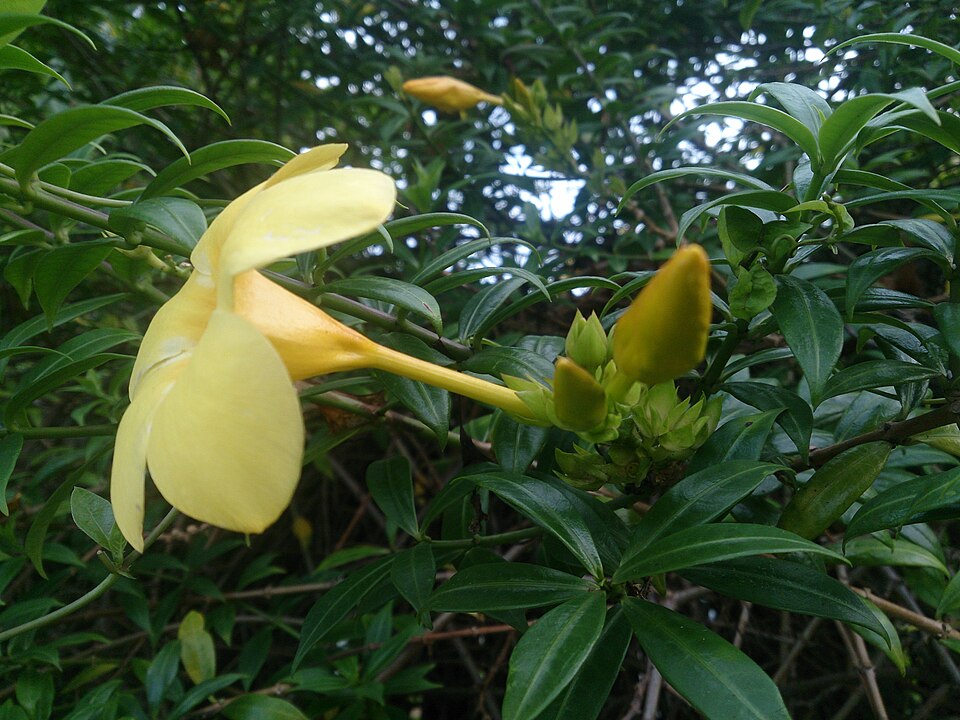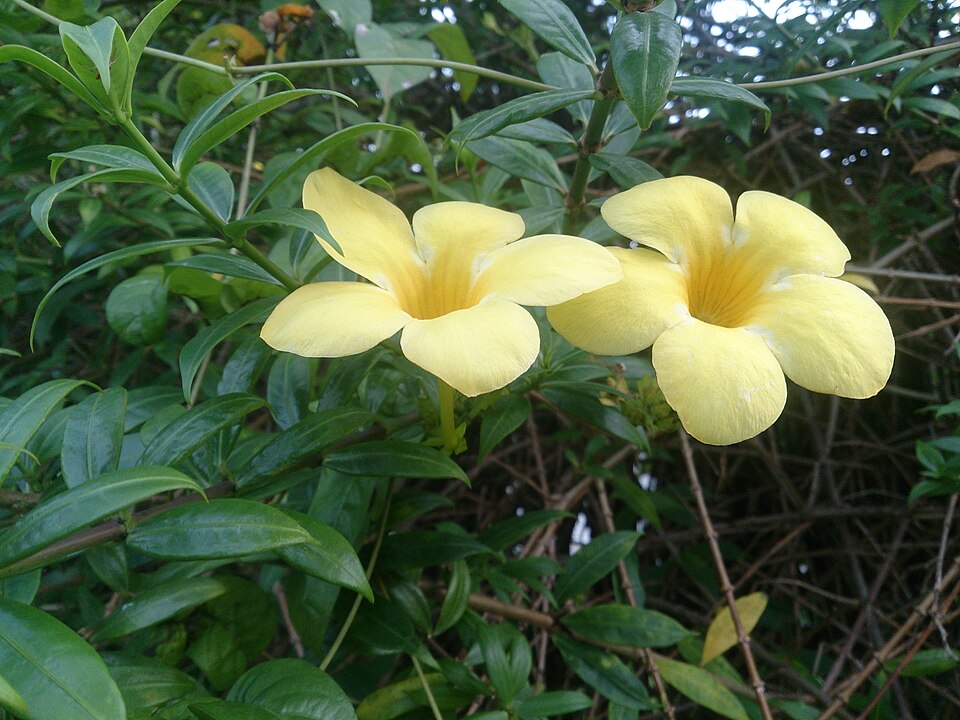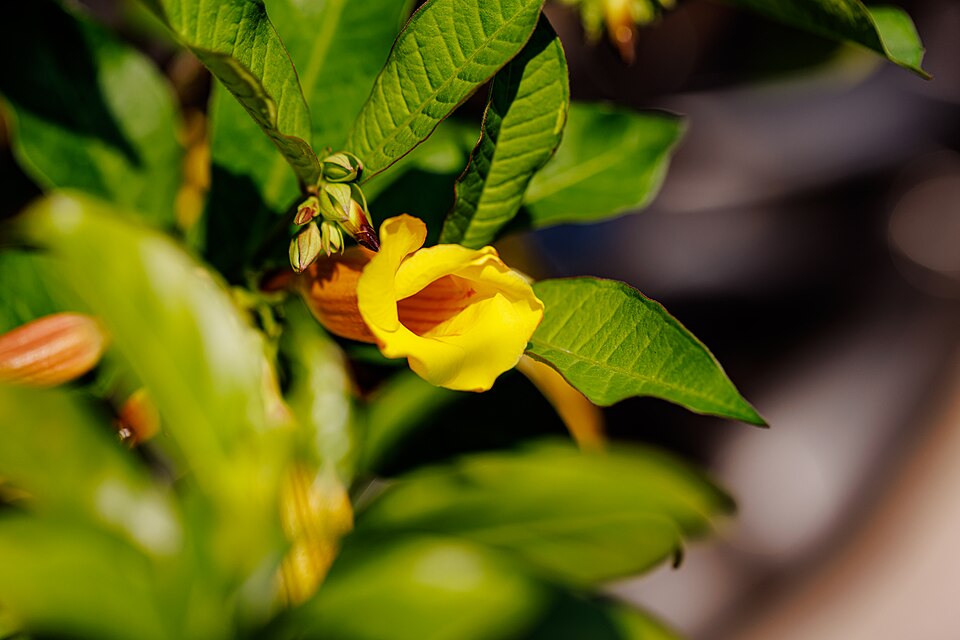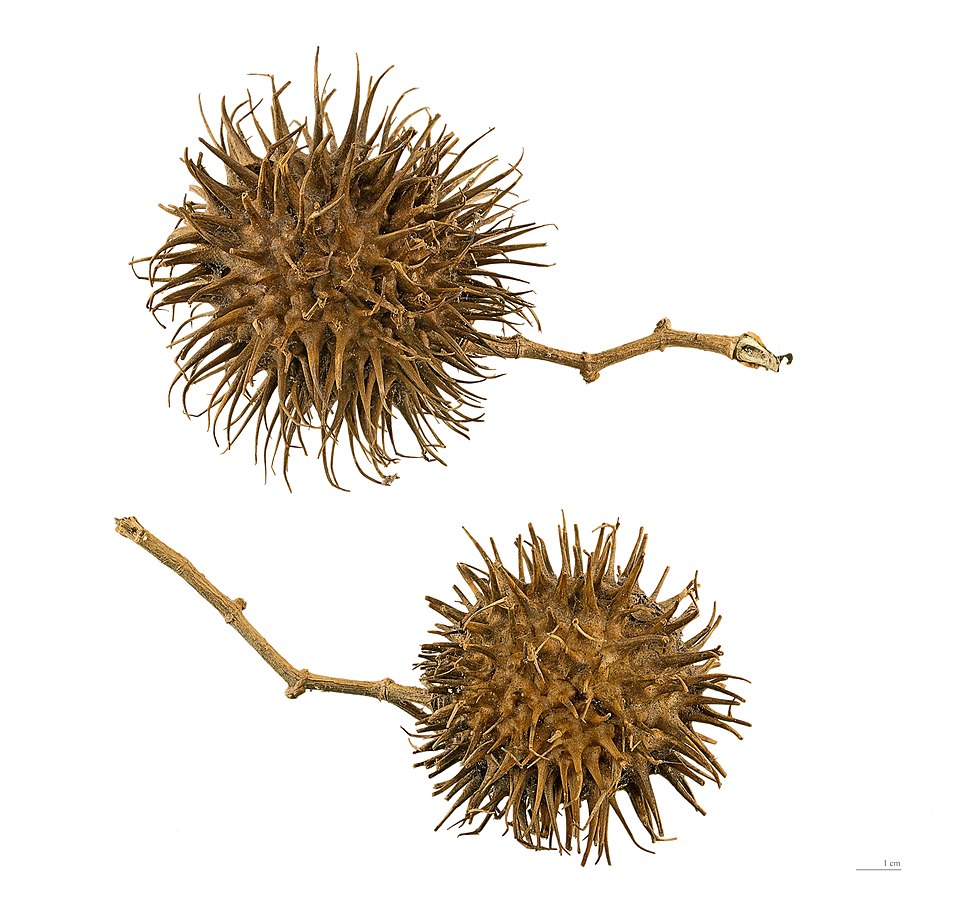Golden Trumpet: A Vibrant Tropical Climber for Warm Climate Gardens
If you’re looking to add a splash of sunshine to your tropical garden, the golden trumpet (Allamanda cathartica) might catch your eye with its brilliant yellow blooms and vigorous climbing habit. This perennial vine brings a burst of color that can transform fences, trellises, and arbors into living walls of gold.
What Is Golden Trumpet?
Golden trumpet is a twining and climbing plant with relatively long stems that can be either woody or herbaceous. True to its name, this vine produces stunning trumpet-shaped flowers in bright golden-yellow hues, complemented by glossy green foliage that creates an attractive backdrop year-round in suitable climates.
Native Status and Geographic Distribution
Originally hailing from South America, including Brazil, French Guiana, Guyana, Suriname, and Venezuela, golden trumpet is a non-native species in the United States. It has established itself and reproduces naturally in several U.S. territories and states, including Florida, Guam, Palau, Puerto Rico, and the U.S. Virgin Islands.
Why Consider Growing Golden Trumpet?
There are several compelling reasons why gardeners in suitable climates might choose this vibrant climber:
- Spectacular blooms: The bright golden-yellow trumpet-shaped flowers create stunning visual impact
- Pollinator attraction: Butterflies and hummingbirds are drawn to its nectar-rich flowers
- Fast coverage: Its vigorous climbing habit makes it excellent for covering fences, walls, and structures
- Year-round interest: Glossy green foliage provides attractive coverage even when not in bloom
- Tropical ambiance: Perfect for creating that lush, tropical garden feel
Growing Conditions and Care
Golden trumpet thrives in USDA hardiness zones 9-11, making it suitable only for tropical and subtropical regions. Here’s what this sunny climber needs to flourish:
Light and Location
Provide full sun to partial shade for the best flowering performance. A location with morning sun and some afternoon protection works well in extremely hot climates.
Soil Requirements
Well-draining soil is essential. This adaptable vine tolerates various soil types but performs best in fertile, slightly acidic to neutral soil.
Watering Needs
Maintain consistent moisture with regular watering, especially during dry periods. However, avoid waterlogged conditions which can lead to root problems.
Support Structure
Since this is a climbing vine, provide sturdy support such as trellises, fences, or arbors. The plant will need guidance and occasional tying to establish its climbing pattern.
Planting and Care Tips
- Pruning: Regular pruning helps maintain shape and encourages more blooms. Prune after flowering cycles
- Frost protection: In zone 9, protect from frost with covers or by planting in protected locations
- Fertilizing: Feed with a balanced fertilizer during the growing season to promote healthy growth and flowering
- Maintenance: Monitor for vigorous growth and trim as needed to prevent it from overwhelming nearby plants
Garden Design Applications
Golden trumpet works beautifully in tropical and subtropical landscape designs. Use it to:
- Cover unsightly fences or walls with living color
- Create privacy screens on patios and decks
- Add vertical interest to coastal gardens
- Establish focal points on arbors and pergolas
Consider Native Alternatives
While golden trumpet can be a stunning addition to appropriate climates, consider these native alternatives that provide similar benefits while supporting local ecosystems:
- Coral honeysuckle (Lonicera sempervirens): Native climbing vine with tubular red flowers
- Cross vine (Bignonia capreolata): Native climber with orange trumpet-shaped flowers
- Carolina jessamine (Gelsemium sempervirens): Native vine with fragrant yellow flowers
The Bottom Line
Golden trumpet offers undeniable beauty with its cheerful yellow blooms and lush climbing habit. If you garden in zones 9-11 and want a fast-growing vine that attracts pollinators and creates tropical ambiance, this could be a good choice for your landscape. Just remember to provide proper support, regular care, and consider native alternatives that offer similar beauty while benefiting local wildlife. Whatever you choose, your garden will thank you for adding vertical interest and vibrant color to the mix!
